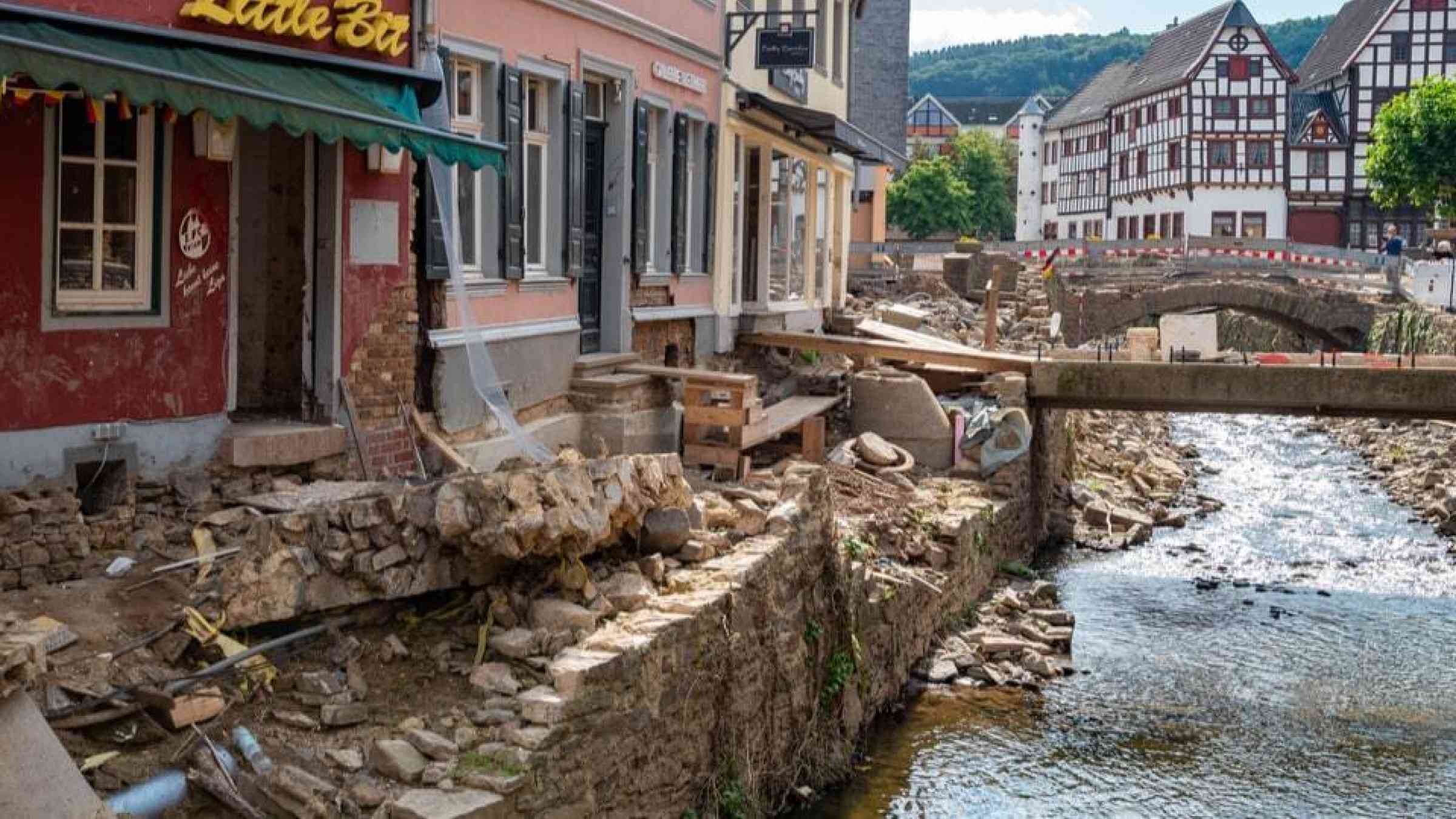Germany: 2021 floods - 10 recommendations for resilience

The flood event in July 2021 in North Rhine-Westphalia and Rhineland-Palatinate caused by heavy rainfall is one of the largest flood disasters in Germany for decades. The affected regions and municipalities are now facing immense challenges. The KAHR (Climate Adaptation, Flood, Resilience) research project funded by the Federal Ministry of Education and Research (BMBF) is accompanying the (re)construction process. And it makes a scientific contribution to flood risk management after the flood disaster in order to make affected regions more resilient.
In the project's model areas, reconstruction phases are identified and actors are advised. The aim is to create demonstration projects, raise awareness of risk and deficits, further develop evaluation criteria for individual measures and improve their feasibility and acceptance.
The German Research Centre for Geosciences Potsdam (GFZ) is one of the project partners.
Now the project team has published 10 recommendations from the perspective of science on the topic of reconstruction and sustainability of flood-affected regions:
Recommendation 1
The reconstruction after the 2021 flood event also offers an opportunity to initiate a strategic transformation process and strengthen disaster resilience.
A small example: DO NOT install any more oil-fired heating systems. They exacerbate flood damage and are climate damaging anyway.
Recommendation 2
All potentials of flood modelling and risk analysis should be exploited for planning protection strategies and preparing and warning those affected.
This also includes thinking in scenarios that were previously considered unthinkable: What would be the very worst case imaginable?
Recommendation 3
More space for the river is important, but this does not only mean settlement retreat - but also adapted land uses.
For example, in the form of sports fields and parks that can serve as floodplains.
Recommendation 4
In future, bridges must be given greater consideration in flood hazard assessments. Bridges can significantly increase the risk of flooding during flood events.
For example, they need to be strengthened to withstand the enormous dam pressures and impact loads caused by the high accumulation of debris and flotsam.
Recommendation 5
Early warning of flood events must be strengthened.
For example, effective warning systems should be reviewed and further developed so that they still function even in the event of a power failure.
Recommendation 6
The signalling function of plans and planning must be strengthened. Heavy rain hazard and risk maps must be publicly accessible.
Recommendation 7
Flood- and climate-resilient planning and building must be integrated at all levels of spatial planning and take into account all facets of climate change impacts.
Recommendation 8
Sustainable reconstruction succeeds when actors establish forms of cooperation and work together inter-municipally. Funding should strengthen this cooperation.
Recommendation 9
Intensive preparation of civil protection and water management for rare flood and heavy rain events improves the management of these events.
Recommendation 10
New protection standards and protection targets for Critical and Sensitive Infrastructures need to be defined and awareness of unavoidable residual risk needs to be raised.